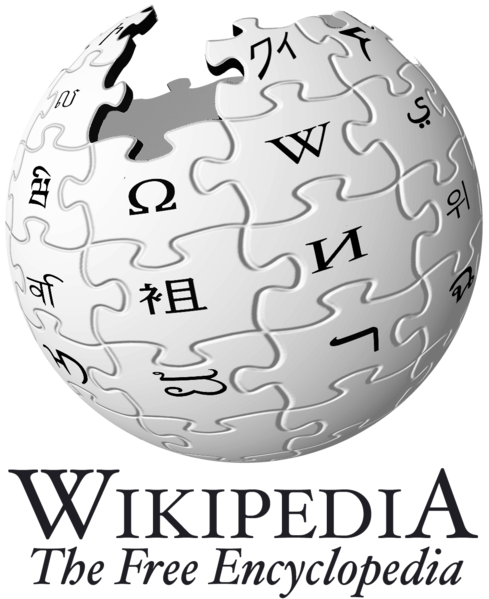|
Getting your Trinity Audio player ready...
|
Wikipedia’s $50M DEI Budget Allocation Sparks Debate Over Priorities and Transparency
Edited by: TJVNews.com
A recent financial disclosure has put Wikipedia—the world’s largest open-source encyclopedia—at the center of a heated debate. According to information reported by Medium.com, Wikipedia’s fiscal year 2023–2024 budget allocates over $50 million towards Diversity, Equity, and Inclusion (DEI) initiatives. This represents a substantial 28.2% of its total annual budget of $177 million, and the revelation has triggered sharp criticism from various corners of the internet, particularly after the “Libs of TikTok” account highlighted the expenditure on X (formerly Twitter).
As outlined by Medium.com, Wikipedia’s budget report reveals a distribution of funds across key strategic pillars:
Infrastructure: $86.1 million (48.6% of the budget)
Equity: $31.2 million (17.6% of the budget)
Safety & Inclusion: $20.5 million (11.6% of the budget)
Effectiveness: $39.2 million (22.2% of the budget)
These categories represent Wikipedia’s investment in sustaining its technological backbone, improving user safety, fostering inclusivity, and enhancing program effectiveness. However, the nearly $50 million earmarked for DEI initiatives has become a central talking point, with critics questioning whether such spending aligns with Wikipedia’s core mission of providing free, unbiased access to information.
As the report on Medium.com explained, DEI (Diversity, Equity, and Inclusion) initiatives aim to ensure fair representation, accessibility, and participation for historically underrepresented groups. This includes funding for educational outreach programs, community grants, representation in leadership roles, and efforts to address systemic biases in Wikipedia’s editorial and content practices.
Supporters of Wikipedia’s DEI allocation argue that this funding is essential for creating a more inclusive platform where diverse voices can contribute meaningfully to the global knowledge base. Critics, however, contend that these programs may divert critical resources away from technical infrastructure and content verification efforts, which are the platform’s traditional cornerstones.
Following the budget revelation, Medium.com reported that a social media firestorm erupted after Libs of TikTok spotlighted the DEI expenditure. The comments ranged from disbelief to outright hostility, with posts such as: “Wow” as well as, “So that’s why they are failing” and “Everything woke turns to sh!t.”
These reactions reflect a broader cultural and political divide over DEI spending, particularly in publicly accessible platforms such as Wikipedia. Critics argue that focusing disproportionately on DEI goals risks undermining Wikipedia’s neutrality, while supporters counter that inclusivity is integral to building a platform that represents the world’s diverse population.
According to the report on Medium.com, Wikipedia’s DEI initiatives are part of its broader strategy to address historical and systemic inequities in knowledge sharing. This includes targeting underrepresented regions, languages, and communities to ensure a more balanced global representation on the platform.
In recent years, Wikipedia has faced mounting criticism over editorial bias and systemic gaps in content coverage, particularly in articles related to marginalized communities. Advocates of DEI spending argue that the allocated funds are a necessary investment to close these gaps and create a platform that genuinely serves everyone equally.
The fundamental question posed by many, as reported by Medium.com, revolves around whether Wikipedia’s DEI spending enhances or detracts from its core mission. Infrastructure remains the largest slice of the budget, receiving nearly 49% of total expenditures, but critics suggest that more funding should be channeled into fact-checking, improving search algorithms, and fighting misinformation.
Supporters counter that equity is not at odds with quality and argue that addressing systemic inequities is crucial to maintaining Wikipedia’s credibility as a global knowledge repository.
The backlash against Wikipedia’s DEI budget is not occurring in isolation. As the Medium.com report highlighted, DEI spending has become a flashpoint in broader political and cultural debates worldwide. Critics often label such initiatives as performative activism or “woke” overreach, while proponents see them as foundational to building fair and representative systems.
This ideological battle has extended into the realm of philanthropy, with some voices calling for donors to withdraw financial support from Wikipedia, now mockingly referred to by detractors as “Wokepedia.”
According to the information contained in the Medium.com report, DEI’s roots in corporate America can be traced back to the 1980s, where it began as a business advantage rather than merely a legal obligation. However, the landscape has shifted considerably in the past few years, with DEI now standing at a contentious crossroads between advocacy, backlash, and financial realities.
As the Medium.com report explained, DEI gained renewed prominence after the 2020 murder of George Floyd, which became a global catalyst for racial justice movements and forced many organizations to reevaluate their commitment to equity and inclusion. Across industries, DEI roles were created, budgets were expanded, and public pledges to support underrepresented communities became commonplace.
However, recent trends indicate a slowdown in DEI hiring, with many companies transitioning away from full-time DEI positions in favor of relying on external consultants. This shift reflects the complex and often precarious status of DEI initiatives, which must navigate both corporate priorities and public scrutiny.
The discussion surrounding DEI has transcended corporate boardrooms and entered the political arena, where it has become a hot-button issue in many states. Medium.com highlighted the case of Florida, where, in January 2024, the Florida Board of Education banned the use of federal or state funds for DEI programs in universities. This decision followed vocal criticism from prominent Republican figures who argue that DEI promotes “equality of outcome” over “equality of opportunity” and fosters division rather than inclusion.
This political opposition mirrors broader sentiments seen across public discourse and social media, where DEI programs are often framed as divisive or wasteful expenditures. However, these critiques often overlook the original intent of DEI initiatives: to address systemic inequities and promote fairness across diverse populations.
The report on Medium.com explained that financial debates around DEI often intersect with conversations about economic inclusion, a distinct but related concept. While economic inclusion emphasizes ensuring access to financial services and opportunities for marginalized groups, Wikipedia’s DEI initiatives focus on cultural and social inclusion, particularly in the content and editorial representation across its platform.
The contrast is significant: financial inclusion seeks economic empowerment, while DEI aims to dismantle structural biases within an organizational or communal framework. Critics of Wikipedia’s $50 million DEI allocation argue that such significant investments might divert resources from core functions such as content verification, technical infrastructure, and community moderation. However, supporters assert that representation and equity are foundational to Wikipedia’s credibility as a truly global knowledge platform.
As per the information in the Medium.com report, public opinion on DEI initiatives is deeply divided along political and ideological lines. While polls indicate that a majority of Americans generally support DEI programs, there is also a vocal minority—often amplified on social media platforms—that sees such initiatives as counterproductive or politically motivated.
The uproar following Wikipedia’s budget allocation is emblematic of this divide. On one hand, supporters view the investment as a necessary step towards fostering an inclusive digital knowledge ecosystem. On the other, detractors frame it as an example of resource mismanagement in favor of performative activism.
Wikipedia’s role as a publicly accessible, community-driven knowledge repository adds another layer of complexity to the DEI debate. As the report on Medium.com highlighted, Wikipedia is not merely a tech company or a corporate entity—it is a global digital library, sustained largely through public donations and volunteer contributions.
This means every financial decision, especially one involving such a significant percentage of the annual budget, is subject to intense public scrutiny. Unlike private corporations, Wikipedia operates in an open and transparent environment, where decisions are constantly questioned, debated, and evaluated by both supporters and critics.
One of the central challenges facing Wikipedia—and many other organizations investing in DEI—is striking a balance between social equity goals and core operational priorities. Medium.com indicated that critics have argued that a disproportionate focus on DEI could compromise critical functions such as infrastructure, fact-checking, and community governance.
Conversely, proponents emphasize that inclusivity is not a diversion from core objectives but an enhancement of them. An equitable editorial environment can lead to more accurate, representative, and balanced content, ultimately strengthening Wikipedia’s value as a trusted knowledge source.
Wikipedia’s DEI budget controversy serves as a microcosm of a larger societal debate over the value, implementation, and outcomes of DEI programs. As the report on Medium.com pointed out, the discussion reflects deep-seated political, cultural, and ideological divisions that extend far beyond the scope of a single organization.
For Wikipedia, the path forward will likely require greater transparency, clearer communication about DEI goals, and measurable outcomes to demonstrate the value of these initiatives. At the same time, balancing equity efforts with core operational responsibilities remains an ongoing challenge.
As this debate continues to unfold, it serves as a critical case study in the intersection of technology, equity, and societal change.






